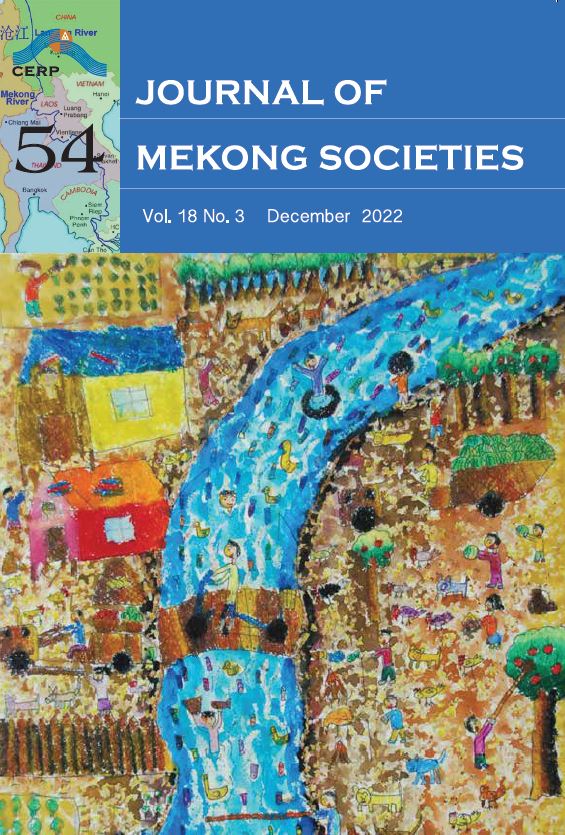Modernization of Shophouses on Luang Road, Ubon Ratchathani during the Cold War
Main Article Content
Abstract
This study investigates the modernization of shophouses on Luang Road, an old trading district of Ubon Ratchathani in northeast Thailand. Using field surveys and in-depth interviews, the study focused on three dimensions of modernization–physical, social, and cultural–during the Cold War (1950-1990). The results show that infrastructure development influenced livelihood changes in all three dimensions. In the physical dimension, wooden and earthen row houses were demolished and replaced by reinforced concrete shophouses, especially when the United States occupied an air force base in Ubon Ratchathani (1963-1974) during the Vietnam War. The social and cultural dimensions included memories of common experiences of changes in livelihood, occupation, beliefs, and rituals. These memories reflect residents’ adjustments during periods of prosperity and decline, as the people integrated the things that came with modernization, including conveniences and changes in world views, into their lives. After the Cold War, the physical and social dimensions underwent westernization while cultural dimensions, such as beliefs, were still maintained as the cultural identity of some ethnic groups.
Article Details

This work is licensed under a Creative Commons Attribution-NonCommercial-NoDerivatives 4.0 International License.


